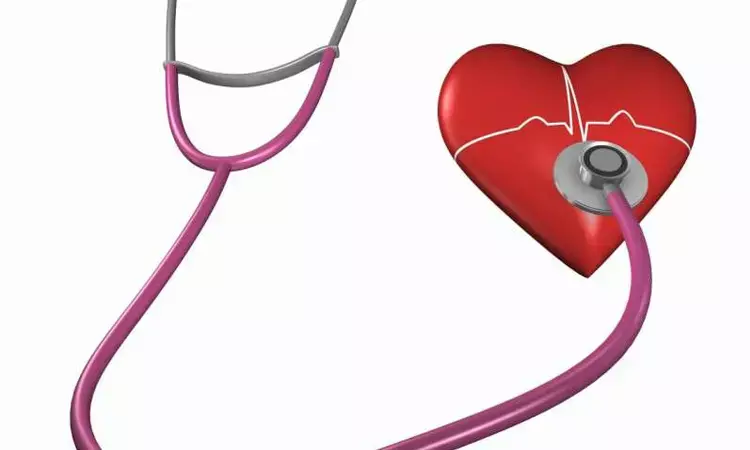- Home
- Medical news & Guidelines
- Anesthesiology
- Cardiology and CTVS
- Critical Care
- Dentistry
- Dermatology
- Diabetes and Endocrinology
- ENT
- Gastroenterology
- Medicine
- Nephrology
- Neurology
- Obstretics-Gynaecology
- Oncology
- Ophthalmology
- Orthopaedics
- Pediatrics-Neonatology
- Psychiatry
- Pulmonology
- Radiology
- Surgery
- Urology
- Laboratory Medicine
- Diet
- Nursing
- Paramedical
- Physiotherapy
- Health news
- Fact Check
- Bone Health Fact Check
- Brain Health Fact Check
- Cancer Related Fact Check
- Child Care Fact Check
- Dental and oral health fact check
- Diabetes and metabolic health fact check
- Diet and Nutrition Fact Check
- Eye and ENT Care Fact Check
- Fitness fact check
- Gut health fact check
- Heart health fact check
- Kidney health fact check
- Medical education fact check
- Men's health fact check
- Respiratory fact check
- Skin and hair care fact check
- Vaccine and Immunization fact check
- Women's health fact check
- AYUSH
- State News
- Andaman and Nicobar Islands
- Andhra Pradesh
- Arunachal Pradesh
- Assam
- Bihar
- Chandigarh
- Chattisgarh
- Dadra and Nagar Haveli
- Daman and Diu
- Delhi
- Goa
- Gujarat
- Haryana
- Himachal Pradesh
- Jammu & Kashmir
- Jharkhand
- Karnataka
- Kerala
- Ladakh
- Lakshadweep
- Madhya Pradesh
- Maharashtra
- Manipur
- Meghalaya
- Mizoram
- Nagaland
- Odisha
- Puducherry
- Punjab
- Rajasthan
- Sikkim
- Tamil Nadu
- Telangana
- Tripura
- Uttar Pradesh
- Uttrakhand
- West Bengal
- Medical Education
- Industry
Link between LDL-C lowering by statins and CVD reduction not consistent says JAMA study

Researchers at RCSI University of Medicine and Health Sciences have found in a new study that the link between 'bad' cholesterol (LDL-C) and poor health outcomes, such as heart attack and stroke, may not be as strong as previously thought.
Further the research questions the efficacy of statins when prescribed with the aim of lowering LDL-C and therefore reducing the risk of cardiovascular disease (CVD).
The study has been published in JAMA Internal Medicine.
Previous research has suggested that using statins to lower LDL-C positively affects health outcomes, and this is reflected in the various iterations of expert guidelines for the prevention of CVD. Statins are now commonly prescribed by doctors, with one third of Irish adults over the age of 50 taking statins, according to previous research.
The new findings contradict this theory, finding that this relationship was not as strong as previously thought. Instead, the research demonstrates that lowering LDL-C using statins had an inconsistent and inconclusive impact on CVD outcomes such as myocardial infarction (MI), stoke, and all-cause mortality.
In addition, it indicates that the overall benefit of taking statins may be small and will vary depending on an individual's personal risk factors.
The lead author on the paper is Dr Paula Byrne from the HRB Centre for Primary Care Research based in RCSI's Department of General Practice. Commenting on the findings, Dr Byrne said: "The message has long been that lowering your cholesterol will reduce your risk of heart disease, and that statins help to achieve this. However, our research indicates that, in reality, the benefits of taking statins are varied and can be quite modest."
The researchers go on to suggest that this updated information should be communicated to patients through informed clinical decision-making and updated clinical guidelines and policy.
JAMA, Journal of American Medical Association, statins, bad cholesterol, LDL cholesterol, CVD, heart attack, stroke,
Statins and CVD prevention
Dr Kamal Kant Kohli-MBBS, DTCD- a chest specialist with more than 30 years of practice and a flair for writing clinical articles, Dr Kamal Kant Kohli joined Medical Dialogues as a Chief Editor of Medical News. Besides writing articles, as an editor, he proofreads and verifies all the medical content published on Medical Dialogues including those coming from journals, studies,medical conferences,guidelines etc. Email: drkohli@medicaldialogues.in. Contact no. 011-43720751


